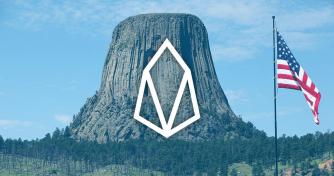 Wyoming to recognize DAOs as legal entities under newly passed law
Wyoming to recognize DAOs as legal entities under newly passed law Wyoming to recognize DAOs as legal entities under newly passed law
The bill recognizes the blockchain-related aspects of DAOs and has attracted praise from several members of the crypto industry.

Cover art/illustration via CryptoSlate. Image includes combined content which may include AI-generated content.
Wyoming has passed a law recognizing blockchain-based decentralized autonomous organizations (DAOs) as legal entities.
The bill — titled the Decentralized Unincorporated Nonprofit Association Act (DUNA) — was signed by the state’s Governor on March 7 and will be effective starting July 1.
The full text of the bill does not explicitly name DAOs. Instead, it describes how eligible nonprofit organizations can create governance systems based on distributed ledger technology (DLT), including blockchain, digital assets, and smart contracts. DAOs use these systems to conduct community votes on governance proposals.
The text also says that membership interests and voting rights should be freely transferable between individuals. DAOs typically achieve this by using transferable crypto tokens in the voting process.
Crypto industry responds
Wyoming’s law has notably been praised by a16z, a division of Andreessen Horowitz.
In a statement, a16z told CryptoSlate that it would encourage all portfolio companies with a decentralized structure to incorporate in Wyoming and mandate this for applicable portfolio companies.
The firm added that Wyoming’s approach is “likely to become the industry standard” for blockchain networks established in the US.
Meanwhile, Coinbase chief legal officer Paul Grewal said states like Wyoming are “critical sources of innovation and inspiration.”
He added that this shows that individual state laws allow decentralization and legislation to coexist.
Ending the LLC model
Crypto-focused lawyer Preston Byrne called Wyoming’s updated law “far better” than the state’s previous attempt at DAO legislation, which did not fully recognize the crypto-related aspects of DAOs and instead treated them as member-managed LLCs.
Vermont and Tennessee continue to treat DAOs as LLCs, similar to Wyoming’s earlier model, while other US states do not have any comparable legislation in effect.
Shifting away from an LLC model is critical because DAOs are often composed of anonymous members and differ significantly from traditional businesses. This limitation affects their ability to comply with financial and regulatory requirements. Wyoming’s latest law now accommodates those differences and fully sets out the activities that DAOs can engage in.















































































































